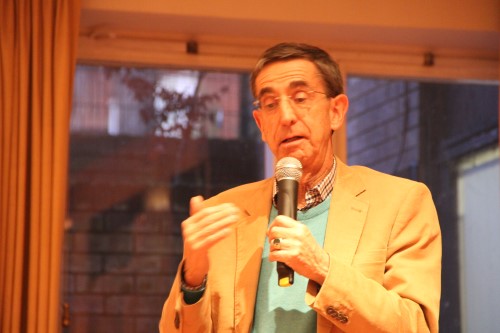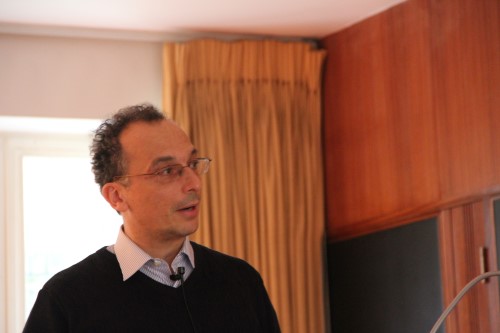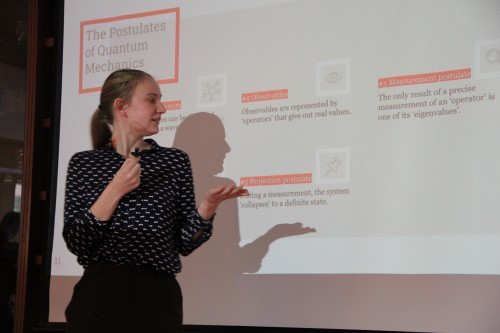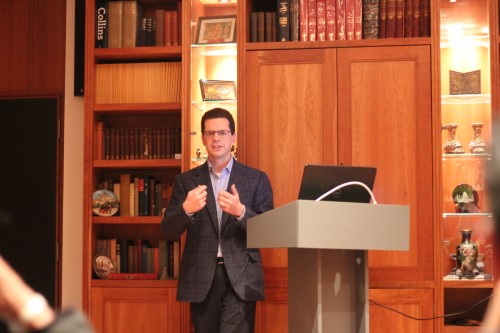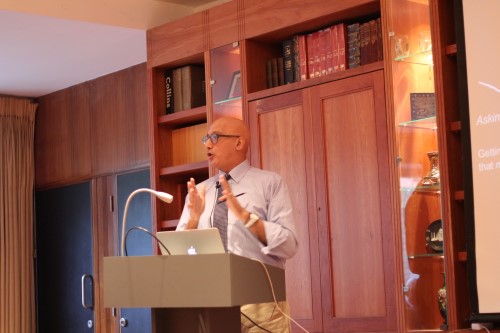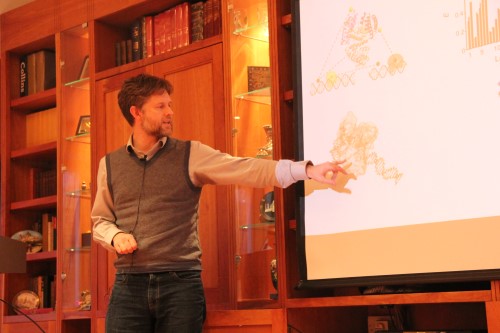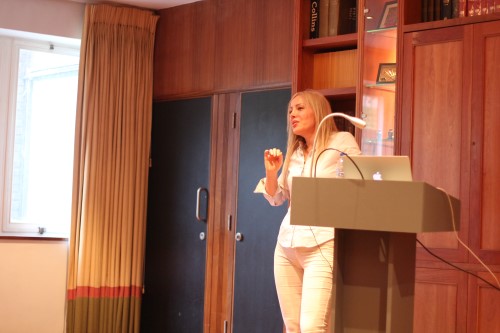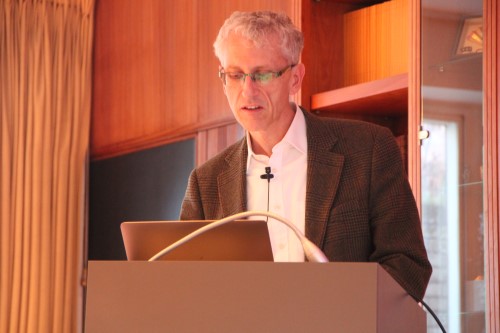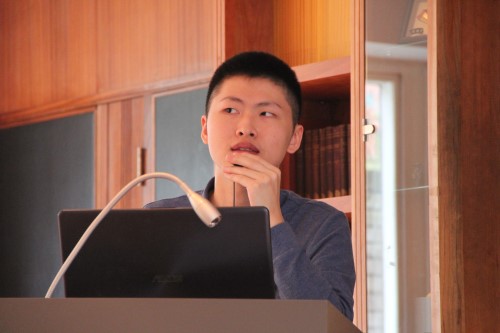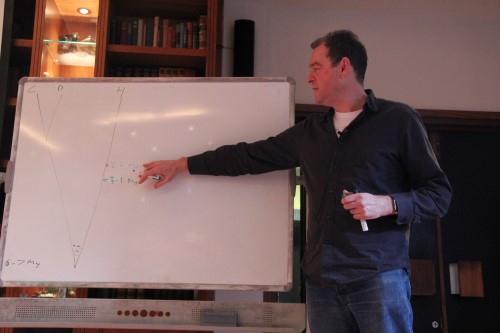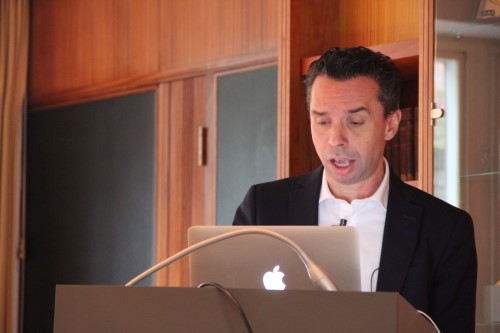22nd International Interdisciplinary Seminar
2 – 4 January 2020
Organised by: The Institute for Interdisciplinary Studies (Zürich and Geneva) Grandpont House (Oxford) and Netherhall House (London)
Presentations held at IIS2020:
Andrew Steane, Department of Physics, University of Oxford.
Mark Fox, Department of Physics and Astronomy, University of Sheffield.
Antoine Suarez, Institute for Interdisciplinary Studies, Zürich.
Paul Shrimpton, Grandpont House and Magdalen College School, Oxford.
Alfred Driessen, Emeritus University of Twente, Amsterdam.
Ilyas Khan, Inaugural Chairman of the Stephen Hawking Foundation and CEO of Cambridge Quantum Computing.
Selma Coecke, University College London
Mark Thomas, Evolutionary Genetics, University College London
Tim Craggs, Department of Chemistry, University of Sheffield.
Carmine Ragone
Jean-David Ponci
Seminar main topics:
Quantum Physics, Evolution & Algorithms: What does it mean to be human?
Objectives
Quantum physics, relativity, evolutionary biology, neuroscience, and computer science have introduced issues which challenge a flat materialistic view of the world and human beings.
On the other hand, science is giving rise to powerful technologies which will increase our capacity for constructing the world and shaping humanity. Quantum computing and Genome editing (CRISPR/Cas9) are among the technologies with the most far-reaching implications.
The fascination with new knowledge and new technologies ask for a reflection about how scientific results may contribute to discussing and answering anthropological, philosophical and theological questions relevant to science and technology.
Programme
The contributions and discussions in Oxford and London during IIS2019 have shown the interest of students and young researchers in defining what is human and bridging the gap between atheism and belief based on today’s science.
The frame of the coming conference will be the perspective pointed out by Stephen Hawking in his about Gödel’s theorem.
We aim to illustrate three ideas:
1. Gödel’s and Turing’s theorems show that in mathematics there will always be solvable unsolved problems.
2. Recent developments in evolution research suggest that the beginning of Humanity cannot be established by biological means alone: it is biologically impossible to establish when the species Homo sapiens or any other species begins with anything other than arbitrary criteria.
3. Quantum physics suggests that physical phenomena are not fully determined by events contained in spacetime.
These three ideas have rich anthropological, philosophical, and theological implications that the seminar aims to explore.
Topics
- Experimental science relies on observation. Can there be observation without the human observer, including his or her five senses?
- If the universe only starts with our observations, what kind of knowledge can we have about the Big Bang?
- How strong is the Physicalism argument (“everything is physical”)? Free will and personal identity logically precede the formulation of scientific theories. Are rationality and science without free will and consciousness even possible?
- The understanding of causality in light of quantum mechanics.
- The Multiverse: Hypothesis of atheism or parable of God’s omniscience?
- Human creativity cannot be reduced to deterministic computing. Could it, however, be reduced to quantum computing? And what is quantum computing after all?
- Can we define what is human without referring to moral responsibility and sense of law?
- Is death a purely biological process?
- Arguably, the beginning of humanity cannot be established exclusively by genetic and evolutionary means. What are the anthropological implications of these limitations?
- Can humanity be coherently defined without invoking the existence of God?
- What is the metaphysical perspective of the Evolution theory? Is Intelligent Design a sound argument?
- Experiments in neuroscience are persistently referred to in popular media as demonstrating that we make our decisions unconsciously. Do these results actually achieve what is claimed, and do they exclude responsible behaviour?
- Transhumanism: what are the possibilities and dangers of “improving” humanity? Is this a new version of eugenics?
- What can natural science in principle not examine: Do human beings need to understand the sense of the whole depth of their experience?
Homosexuality and discrimination
Background
Homosexuality is currently proscribed in many countries, some with a strict interpretation of Sharia law where homosexual activity is punishable by death. Even in Britain, less than 60 years ago homosexual activity between men was a criminal offence. Playwright Oscar Wilde and more recently Mathematician Alan Turing were imprisoned for this “crime”.
In the last 30 years there has been a big change in public opinion about homosexuality to the point that it is now an accepted part of life in most countries. Until late in the 20th century, homosexuality appeared as “sexual deviations and disorders” in the International Statistical Classification of Diseases and Related Health Problems of the World Health Organization. Nowadays, the WHO stresses that “sexual orientation by itself is not to be regarded as a disorder”, but keeps the construct of “ego-dystonic sexual orientation”, when a person doesn’t accept his or her orientation. At the same time some gay people still report discrimination at work and in society and fear of being known as such.
Since 2004 when it was legalized in the Netherlands, gay marriage has become legal in over 20 countries. This has satisfied some people but has alienated others who believe that marriage is conjugal by definition. The latter group new feel discriminated at work and in society and feel in danger of losing their jobs or being ostracized if they speak about their views in public. Florists and wedding companies who do not supply gay couples for their weddings can face long and expensive legal action against them and even lose their businesses.
Recently there have been protests in some UK schools that the sex and relationships curriculums for primary schools which have been designed to overcome discrimination of LGBT people are sexualising children too soon and making them face issues they are not properly equipped to deal with. Some parents have also complained that teaching young children about same-sex relationships is a kind of indoctrination that goes against their religious and moral traditions.
Topics
Participants in the seminar are asked to choose a topic, research it online and with other people, and prepare a presentation. Possible topics include:
- What is the conjugal understanding of marriage and how does this understanding shape society? Is it a dogma or based on nature?
- The history of gay rights and their acceptance in society
- To what extent is there discrimination against gay people in society today?
- When can it be permissible to discriminate and why? How does discrimination cross from the private to the public sphere?
- What is the relationship of charity to justice, mercy and natural law? What benefit is it for one group to clarify their objections against another group?
- Same-sex marriage: history and arguments in this debate
- Good and bad consequences of same-sex marriage legislation in different countries
- The ability to dissent from current orthodoxies on LGBT issues
- Same-sex parenting: relevant studies and results
- Reparative therapy: is it always bad? What do the studies say?
- Coming out as straight without any therapy: is it common?
- Schoolbooks, children’s literature, school lessons: overcoming discrimination or promoting homosexuality?
- Radical feminists vs. trans activists
- Depression and other health risks: are they more prevalent in the LGBTQ community? What do the studies say?
Other related topics could also be selected.
Some practical information:
Sessions
Thu 2nd January — Academic sessions either in Oxford, Cambridge, or London (Imperial college and British Museum) (Programme in progress).
Fri 3rd January — Academic sessions in London (including standing-lunch and coffee breaks), 10.00 – 18.00 h.
Sat 4th January — Academic sessions in London (including standing-lunch and coffee breaks), 10.00 – 18.00 h.
Registration
If you are interested in attending, please complete the online application form.
Accommodation
All participants are kindly requested to make their own accommodation arrangements.
Affordable accommodation can be found at:
- Palmers Lodge, Swiss Cottage (only five minutes walk away from the venue of the Conference).
- Netherhall House (Please note that Netherhall can offer very limited accommodation, and is only for male participants).
Gallery
